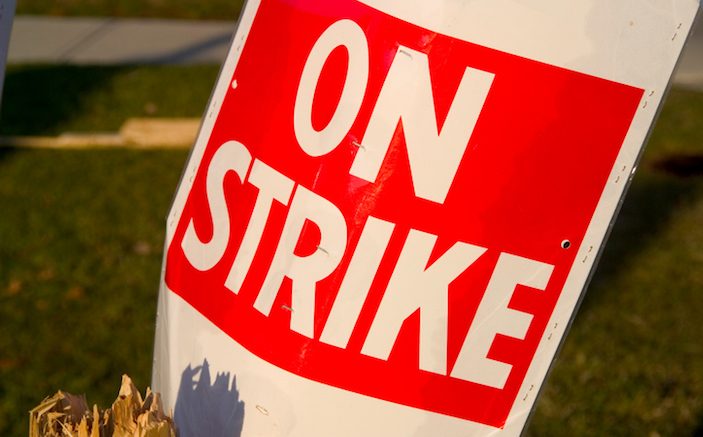Emergency physicians often find themselves on an uneven playing field when it comes to contract negotiations. And yet a union’s greatest weapon – the strike – runs contrary to the ethos of emergency medicine.
Emergency physicians today often find themselves on an uneven playing field with their employers. Emergency physician practices have become increasingly consolidated, with a disproportionate number of emergency physicians now employed by large contract management groups or by large hospital networks. Several of these employers have multi-billion dollar market capitalizations, thousands of employees, and substantial legal resources, creating a huge power imbalance compared to an individual emergency physician employee.
Many large emergency physician practices insist upon draconian employment contract terms, such as waiving the physician’s right to due process or imposing restrictive covenants prohibiting the physician from working in the area with a future employer. Lack of transparency is standard, i.e., most physicians in large practices cannot see what is billed or collected in their name, even though they are potentially responsible for any billing fraud. The physician practice has much control over the physician’s ability to make a living, including the ability to limit hours or take the physician off the schedule entirely. Many large physician practices and hospital networks, often controlled by non-physicians, are aggressively blurring the line regarding the “practice of medicine,” setting clinical expectations and metrics that are not compatible with patient safety or physician well-being. Unfortunately, due to this uneven playing field, individuals employed as emergency physicians face tremendous difficulty in advocating for practice rights, fair working conditions, and fair compensation for themselves, as well as advocating for patient safety and the autonomy to practice emergency medicine as they feel is in the patient’s best interest.
Within and outside of healthcare, unions have afforded an opportunity for groups of individuals to band together to advocate for their interests through collective bargaining. Salaried physicians in the U.S., whether employed by a private company or the government, can currently join a union and collectively bargain. Non-salaried physicians can join a union as individuals but cannot collectively bargain. Unions for healthcare workers are not unusual in the United States. In fact, 13% of all healthcare workers are unionized, slightly higher than non-healthcare workers. The largest U.S. nursing union, National Nurses United, has ~ 190,000 members. Nursing unions have helped to improve nurse working conditions and salaries. However, opponents have been critical that nursing unions may drive up costs and could have a negative impact on patients due to actions such as strikes and nurse/patient ratio mandates.
The American Medical Association created a physician’s union, Physicians for Responsible Negotiation (PRN), in 1999. The PRN leadership took the position that they would never call a strike, which significantly limited PRN’s potential clout during collective bargaining. Just five years later, PRN was shut down, after only signing up about 40 physicians.
In 2016, after three years of negotiation, resident physicians working for the United Kingdom’s National Health Service (NHS) went on a series of strikes in response to the NHS’s plan to expand required after-hours work and limit the pay for this work. Ultimately, the strikes ended with little change in policy, and the perception of physicians by the public was tainted.
Even the U.S. is not immune from the physician strikes. In 2015, physicians staffing student clinics in the University of California system went on a limited strike for one day in January and four days in April, after failing to come to terms regarding working conditions and compensation over 50+ negotiating sessions. The Union of American Physicians and Dentists (UAPD), the largest physician union, led the strike, which was its first in its 44-year history.
An emergency physician union would need to have the ability to strike to maximize its effectiveness. However, a strike by emergency physicians would be an extremely serious action, with the possibility for significant adverse impact on our patients and our communities, as well as emergency physicians’ public image. An emergency physician strike would be an incredibly powerful and dangerous weapon. Emergency physicians have proven themselves time and time again as the champions of the most vulnerable patients, often at much personal cost, so I think it would be a huge leap for an emergency physician union to ever put our patients at significant risk.
An emergency physician union that does not strike would not be toothless. Currently, large contract management groups and large hospital networks can easily marginalize or terminate an employed physician who brings legitimate concerns to the table, if they want to eliminate the “squeaky wheel.” With a union collectively bargaining on its members’ behalf, it is much more difficult for the employer to reciprocate inappropriately. An emergency physician union with much representation with a particular contract management group or hospital network could certainly be more effective in negotiating a fair contract on its members’ behalf. If the employer was unwilling to negotiate in good faith, they could find themselves losing a large portion of their workforce at their next contract renewal date, with the need to expend large sums on temporary coverage in order to ensure continual staffing.
I practice in an independent, fully democratic group with supportive hospital partners. A physician union isn’t the solution for me (and my partners and I would not have the ability to collectively bargain under current law). Unfortunately this is not the case for far too many employed emergency physicians, who simply do not have a fair, respectful, transparent relationship with their contract management network or hospital network employer. For these physicians, a union might make sense. If many large emergency medicine employers continue to let physician practice environment and workplace fairness issues take a backseat to profits, I expect we will see an emergency physician union materialize soon, with potentially major implications for these groups.
Read More
Dr. Judith Tintinalli asks the question, “Do we need to put emergency medicine on the endangered list?”
Gary Gaddis weighs in on emergency medicine’s prospects in Europe.






2 Comments
Just imagine the absolute crippling effect it would have world wide if we could!
I think the real question is going to be how the profession will handle the inevitable autonomy of advanced practice practitioners. If you could hire someone with less training who will probably also have payment parity, what is the real incentive to hire a physician? The knee-jerk response is outcomes, but I don’t think either side wants to see the results of (or pay for) that study. I do not see how we are fundamentally different than any other skilled labor who, themselves, have the right to organize.